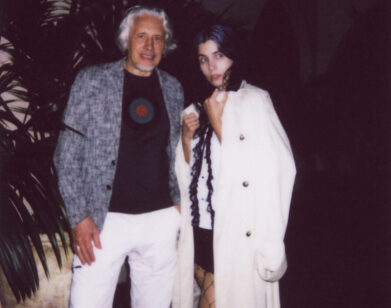Chelsea Manning and Nadya from Pussy Riot talk fighting the man

CHELSEA MANNING AND NADYA TOLOKNO SPEAKING AT THE DAY FOR NIGHT SUMMIT. PHOTO BY ROGER HO.
On Friday, multi-hyphenate artist Laurie Anderson inaugurated the Day for Night summit with an invitation for the audience: let out a scream for 20 seconds. It was a fitting start to the Houston music and art festival’s first-ever talks series, which centered on the intersection between art and activism—and especially the question of rage: how to embrace our rage about the current political moment, how to channel it into productive change. Anderson and artist Lauren McCarthy each spoke about the challenges of making art that sometimes feels unwelcome in the world; poet and performer Saul Williams read new work. But the summit’s highlight was a conversation between Chelsea Manning and Nadya Tolokno of Pussy Riot, who met on stage to discuss their parallel experiences as political prisoners, and how the experience shaped their lives and their activism.
Manning spent seven years in prison for leaking classified government documents before having her sentence commuted, last January, by then-President Obama; Tolokno and her punk band Pussy Riot spent two years in prison for “hooliganism,” after a 2012 performance in a Moscow cathedral. Since their release, both women have become outspoken critics of their governments.
“I was struck by how similar our experiences were,” Manning told Tolokno at one point. “Prison transcends cultures, transcends times.” The two activists discussed the importance of solidarity—with both fellow prisoners and supporters outside the prison walls. “In prison, you don’t have the option to forget about solidarity,” Tolokno said. “In real life it’s so easy to forget this; to get stuck in your comfort zone—even if this comfort zone is shrinking every day because of inequality, police states, political oppression.” Manning recalled how reading letters from supporters kept her alive, but added: “Hope doesn’t come from somebody else. It comes from within.”
“We sound like we’re promoting prison,” Tolokno joked at one point. “But sometimes you need a transgressive experience to have a revelation.”






